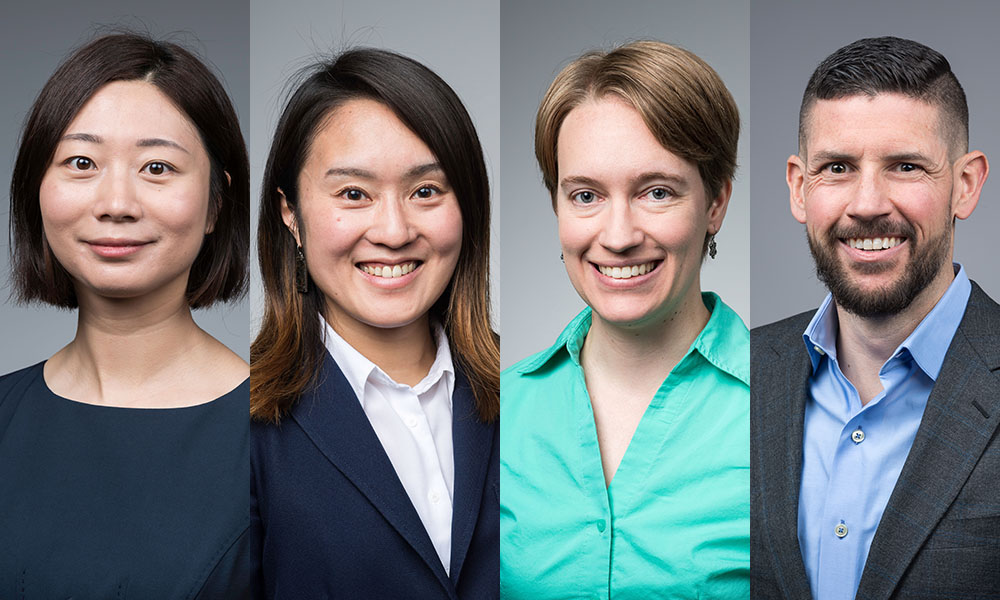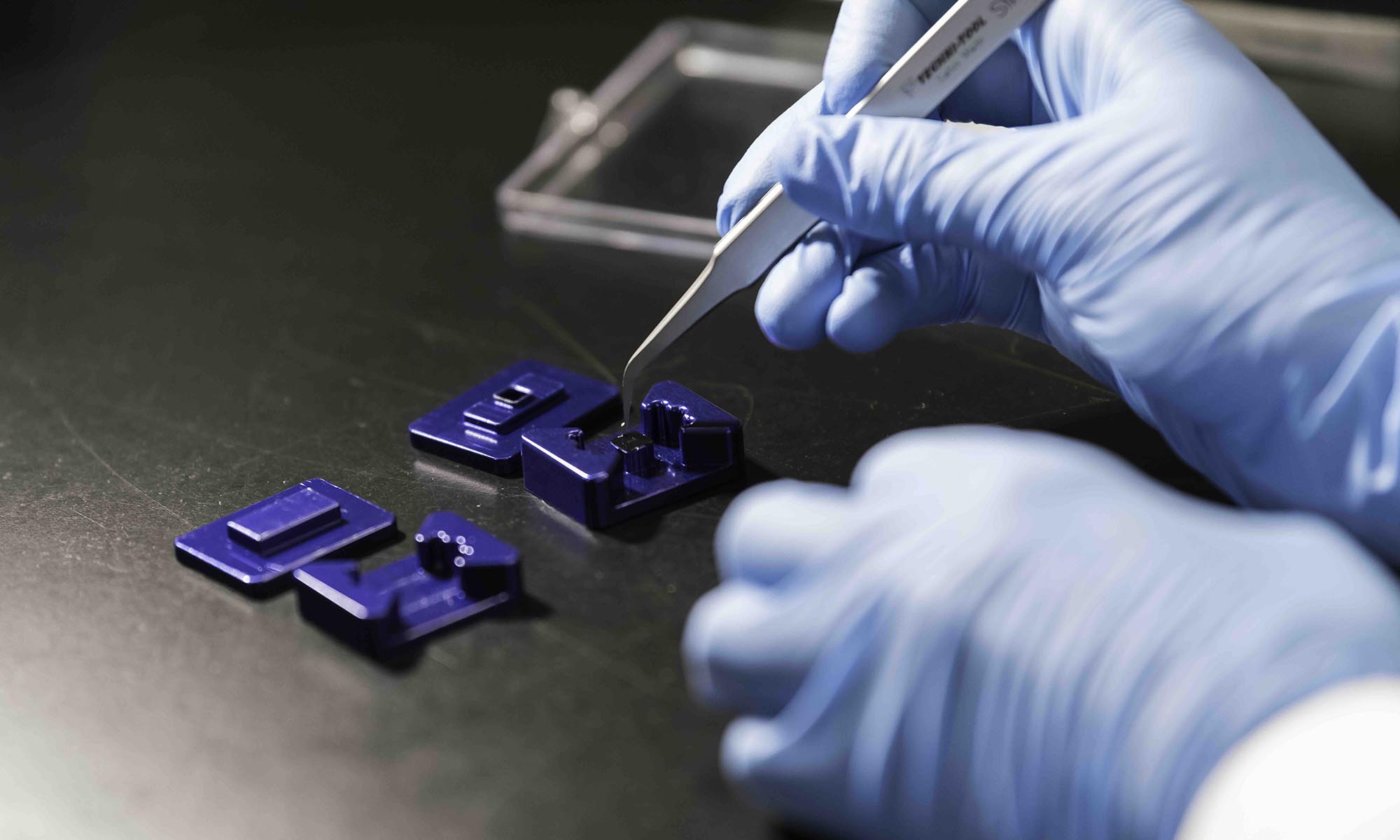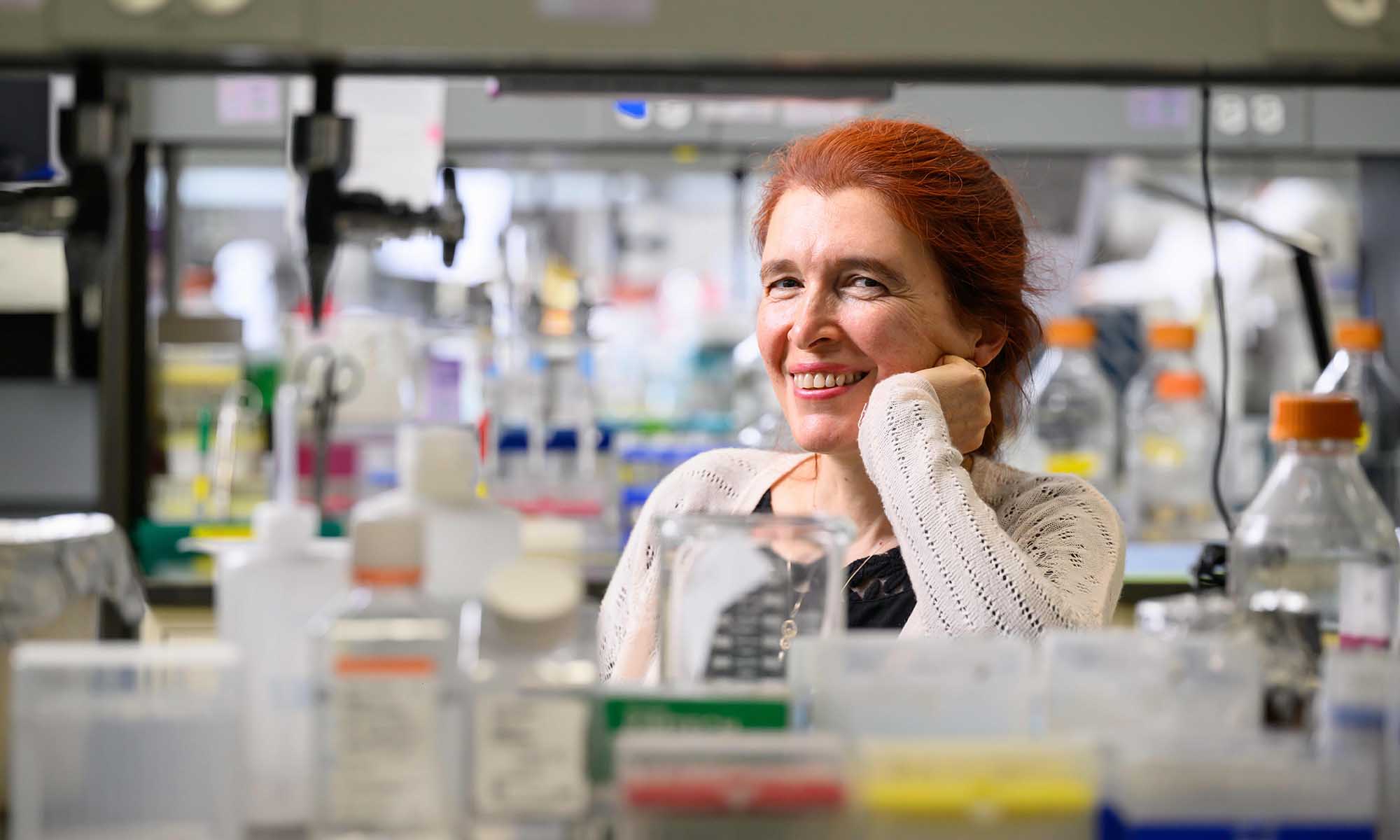Four Rochester scientists have received prestigious NSF CAREER awards, presented to early-career faculty members for research and education initiatives.
The National Science Foundation (NSF) has granted its most prestigious award in support of junior faculty, the Faculty Early Career Development (CAREER) award, to four University of Rochester researchers this year.
The NSF CAREER award is given to promising scientists early in their careers and recognizes “outstanding research, excellent education, and the integration of education and research.” The award also comes with a federal grant toward their research and education activities.
Zhen Bai, an assistant professor of computer science, will develop novel embodied learning technologies that help K–12 students demystify machine learning, an integral aspect of current approaches to artificial intelligence, or AI. Children are increasingly influenced by technological advances in AI that provide personalized recommendations about the books they read, individualized lessons, career path plans, and friend circles. As smart learning companions such as animated intelligent characters become popular, children are at risk of over-trusting and overestimating the capabilities of AI. The project will provide hands-on and collaborative learning experiences for children to make sense of the inner workings of machine learning, similar to how they build, act, and experiment in collaboration with friends. The learning experiences will be designed to be accessible to children regardless of their math and computing background, and with special attention to those from backgrounds that are historically underrepresented in science, technology, engineering, and math. Bai aims to help prepare 21st-century learners to become critical thinkers about AI, both as consumers and future creators.
Miki Nakajima, an assistant professor of earth and environmental sciences, will study planetary magnetic fields. In our solar system, Earth is the only terrestrial planet with a strong magnetic field. The magnetic field shields the planet from harmful solar particles, providing a habitable environment for life. Other planets such as Mars likely had a magnetic field in the past, while Mercury has a field that is much weaker than Earth’s, and Venus shows no signs of a magnetic field. Earth’s magnetic field is currently generated by convection processes deep within the planet’s iron core, but this may not have been the case in the past. Nakajima will conduct numerical simulations and experiments at the University’s Laboratory for Laser Energetics to study the mechanisms of magnetic fields, including how Earth’s magnetic field and other planetary magnetic fields have changed throughout planetary history. Undergraduate and graduate students will contribute to the project, along with four local high school students, who will join the project as summer interns.
Shauna Paradine, an assistant professor of chemistry, will study new chemical processes to create complex molecules called heterocycles more efficiently. Because of their unique chemical and physical properties, heterocycles are ideal candidates for applications in medicine, agriculture, and advanced materials. Heterocycles with structures that are three-dimensional are especially desirable, but they are often more challenging to access. Paradine’s CAREER award will support her research on attaching ligands—molecules that act as “helpers” to influence a metal’s behavior in chemical reactions—to atoms of the metallic element palladium. By attaching specific ligands to palladium, Paradine and the members of her lab can control how palladium interacts with substrates. They can then apply the palladium to heterocycles to precisely tune the properties of these complex molecules, making the heterocycles more useful for specific applications. As part of her project, Paradine will develop a course that provides students with strategies to communicate effectively about science.
Aaron White, an assistant professor of linguistics, will create a framework called logical form induction (LoFI) that improves the logical reasoning abilities of artificial intelligence (AI) systems. White’s objective is to develop AI into a tool that deepens our understanding of how people comprehend natural language. While AI has gotten much better in recent years at processing natural language, their capacity to simulate complex logical reasoning leaves much room for improvement. To achieve his goal, White will have AI systems make predictions about logical relationships between two natural language expressions, and then have humans determine whether the system was correct. The system will then use that human guidance to improve its predictions. The project is intended to enhance programming and statistical literacy, as well as data collection and data management skills, at both the graduate and undergraduate levels. It will also support the development of the curriculum for a new bachelor of science degree in computational linguistics. The work will take place in White’s FACTS.lab (Formal and Computational Semantics) with the assistance of graduate and undergraduate students.





